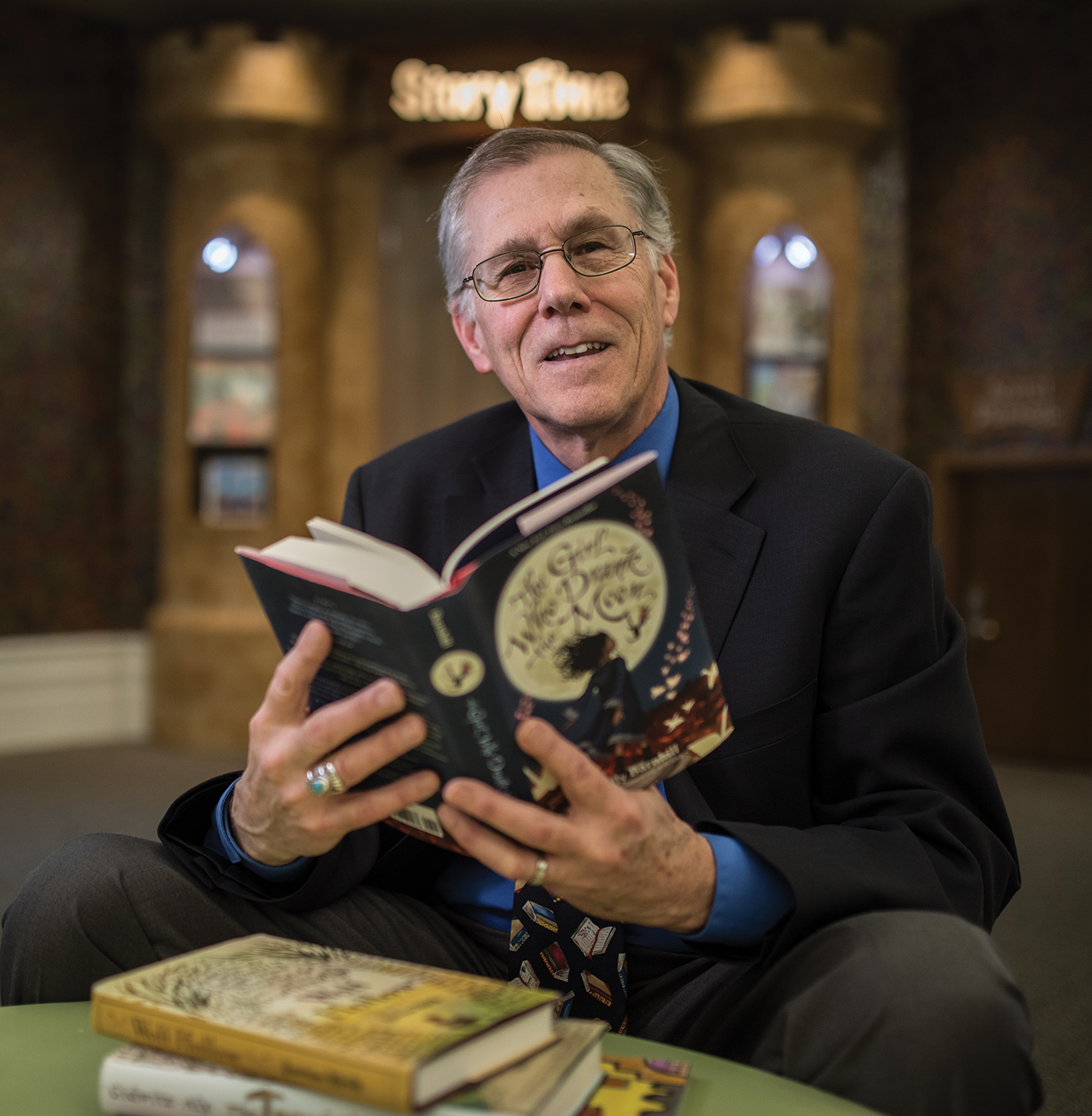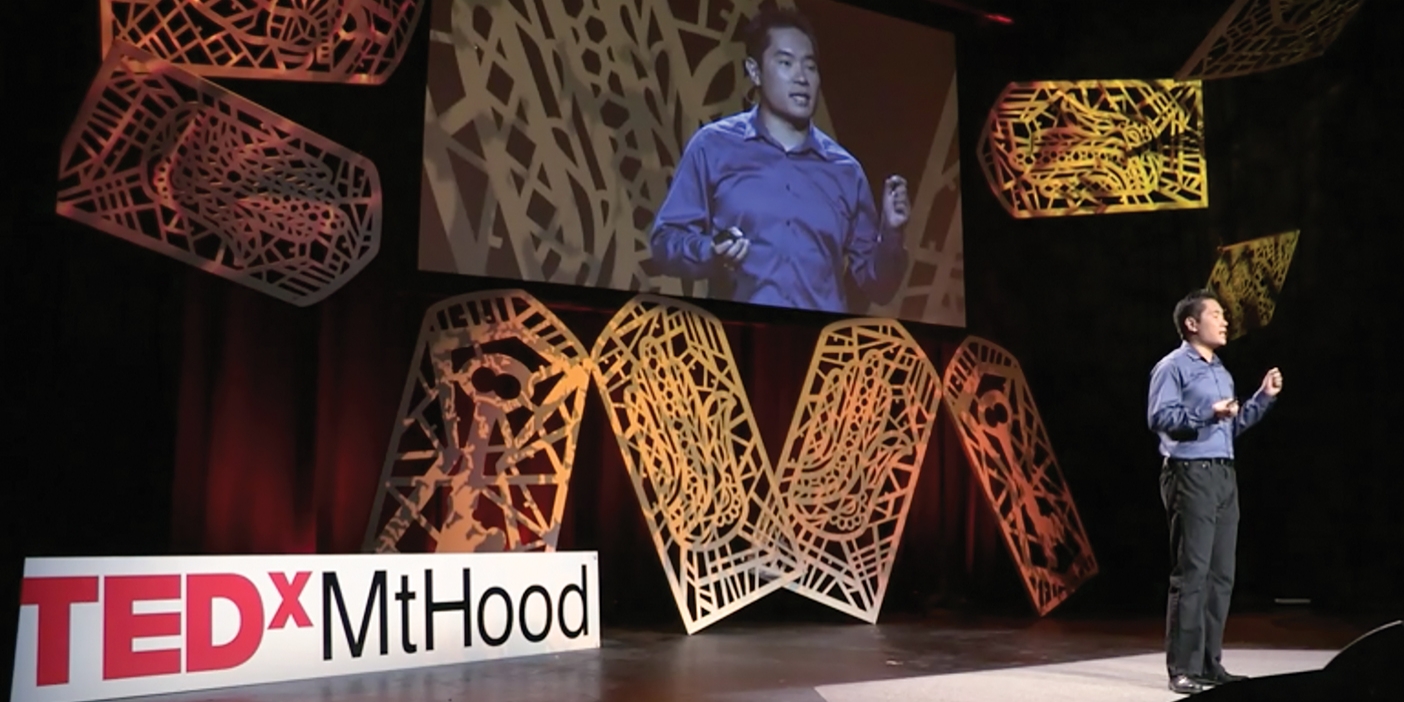RISE: Thoughts from an inspiring alum.

Provo City Library director Gene Nelson Jr. (BS ’78, MLS ’79) has twice served on the Caldecott Awardcommittee and just completed a term on the Newbery Award committee, both a dream come true for a man who has spent his life surrounded by books. He’s been an elementary, middle-school, community-college, and public librarian and has helped build three different libraries, including the Provo City Library, the restored former Brigham Young Academy. He still finds time in his job to teach teachers about literature and to help select books that are best for kids.
“I was always a reader. My dad was a mechanic, my mom a high-school dropout. She wasn’t a great student, but she was a reader. Mom read to us a lot. We got our books from the book fair, where you can order off the little sheet of paper. I’d go home and beg. Little did I know that Mom and Dad were making sacrifices for me to buy books to read.”
“Paraphrasing G.K. Chesterton, fantasy writer Neil Gaiman said, ‘Fairy tales are more than true. Not because they tell us that dragons exist, but because they tell us that dragons can be beaten.’ That’s what fantasy does for kids. Those dragons can be beaten not just by magic, but by hard work, perseverance, and treating others well. Think about Harry Potter. He didn’t just win that final battle with Voldemort because of his powers and abilities; it’s because he didn’t quit.”
“Frodo’s character helped reveal who I was to myself. I was extremely shy, and the idea of standing in front of a group scared me to death. It sounds so silly to think this hobbit had an influence on me, but I took his attitude of ‘Dig down and do it, put yourself out there, there are things bigger than you going on but you’re part of it,’ and it led me to opportunities and challenges that really framed my life.”
“It was the beginning of my senior year when I told my wife, ‘Sweetheart, I’m not going to pursue this psychology idea.’ She asked, ‘So what are you going to do?’ I said, ‘I don’t know.’ I asked my mentor, English professor Linda Hunter Adams (BA ’63, MA ’68), what I should do, and she said, ‘Have you ever thought of being a librarian?’ She picked up the phone, and . . . before you know it, I’m accepted to library school.”
“The Newbery Award is not a popular vote. Our goal is to find the best writing, the most distinguished and distinct writing. This year’s winner, The Girl Who Drank the Moon, has almost 400 pages and a pretty complicated plot. Kelly Barnhill doesn’t talk down to children. She respects the ability of the children to read, understand, and capture what she’s saying.”
“When I was growing up, the books we read—fantasy, science fiction, and realistic fiction—rarely dealt with the tough things of life. Today, those issues are out there in children’s literature in one way or another. I think the authors have decided, ‘Let’s not talk down, let’s talk up. Let’s reach out and help our kids understand their world.’ Kids can handle some tough things. We don’t give them enough credit sometimes.”
“At about 10, 11, or 12, you start realizing that, gosh, Mom and Dad are not perfect. They make mistakes. They let their temper get away from them. They make bad judgments sometimes. That’s one of the things I found this year [as a Newbery committee member]. I could go book by book by book and say, ‘Okay. Here’s a character who’s just like me, who’s flawed, who’s not perfect, and somehow they figure it out. They figure out how to kill the dragons in their life.’”












